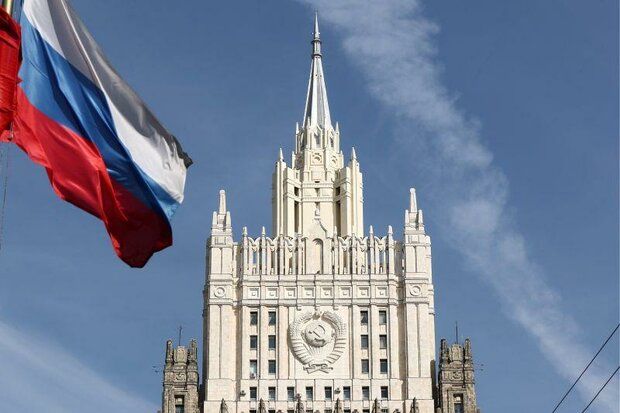Russian Foreign Ministry on Wednesday announced its decision to impose sanctions on 333 Canadian officials and public figures, in what it said was a tit-for-tat response to Canadian restrictions on Moscow.
The Ministry released a statement on its website, outlining the “stop list” for Canadian citizens.
The list includes Canada's Governor General Mary Simon, over 250 members of regional legislative assemblies, and numerous Canadian athletes who have publicly supported the ban on Russian athletes competing in the 2024 Olympics.
“In view of the anti-Russian sanctions periodically imposed by the Trudeau regime against officials, politicians, experts, journalists, cultural figures and athletes from Russia, as well as anyone who does not suit the Ottawa 'mainstream' and the neo-Nazi authorities supported by it in Kyiv, entry into the Russian Federation closes permanently to 333 Canadian citizens," the statement reads.
“Adhering to the principle of the inevitability of punishment, the Russian side, in response to the hostile actions of Ottawa, included on the 'stop list' representatives of the Canadian leadership, parliamentarians and politicians of various levels, public activists and athletes involved in the spread of rabid Russophobia in the country,” it added.
On April 11, Canadian authorities imposed sanctions on 14 Russian individuals and 34 entities, including security targets linked to Wagner Group.
Canadian Prime Minister Justin Trudeau expressed his country's support for Ukraine and announced that Ottawa was imposing sanctions on nine entities tied to the Belarusian financial sector, in order to further pressure Russia's “enablers in Belarus”.
The sanctions came at a time when Moscow's relations with the European Union and the United States deteriorated to their lowest level since the end of the Cold War. Since Russia launched what it calls a “special military operation” in Ukraine, Western nations have tightened the screws on Moscow through severe sanctions that have crippled the country’s economy and penalized its government officials and their family members.
Among the many coordinated allied actions, Western powers have targeted several large financial institutions, Russian sovereign debt and wealthy individuals from Russia to limit Russia's ability to pay for the war. Sanctions on Russia’s foreign debt envisage that the country can no longer raise money for its state financing from Western financial institutions.
Western countries have also agreed to exclude Russian banks, which fell under sanctions, from an international payment system known as SWIFT and used by thousands of financial institutions worldwide. The existing sanctions have blocked Russia from importing key technologies, including those for defence, energy, telecoms, and aviation sectors.
The West is working to implement the sanctions that have been in place for the past year, and many of the additional penalties represent a shift toward tightening current restrictions.







 The Mine Action Agency of Azerbaijan (ANAMA) reported on Thursday the discovery of a significant amount of explosives in the Khojavand district of ...
The Mine Action Agency of Azerbaijan (ANAMA) reported on Thursday the discovery of a significant amount of explosives in the Khojavand district of ...
 Iran’s Foreign Minister, Hossein Amir-Abdollahian, has labeled a foiled Israeli drone attack in certain parts of the country as a "failure" for Isr...
Iran’s Foreign Minister, Hossein Amir-Abdollahian, has labeled a foiled Israeli drone attack in certain parts of the country as a "failure" for Isr...
 Iran has refuted reports of alleged damage to Shimon Peres Negev Nuclear Research Centre located southeast of Dimona, Israel, during the recent air...
Iran has refuted reports of alleged damage to Shimon Peres Negev Nuclear Research Centre located southeast of Dimona, Israel, during the recent air...



